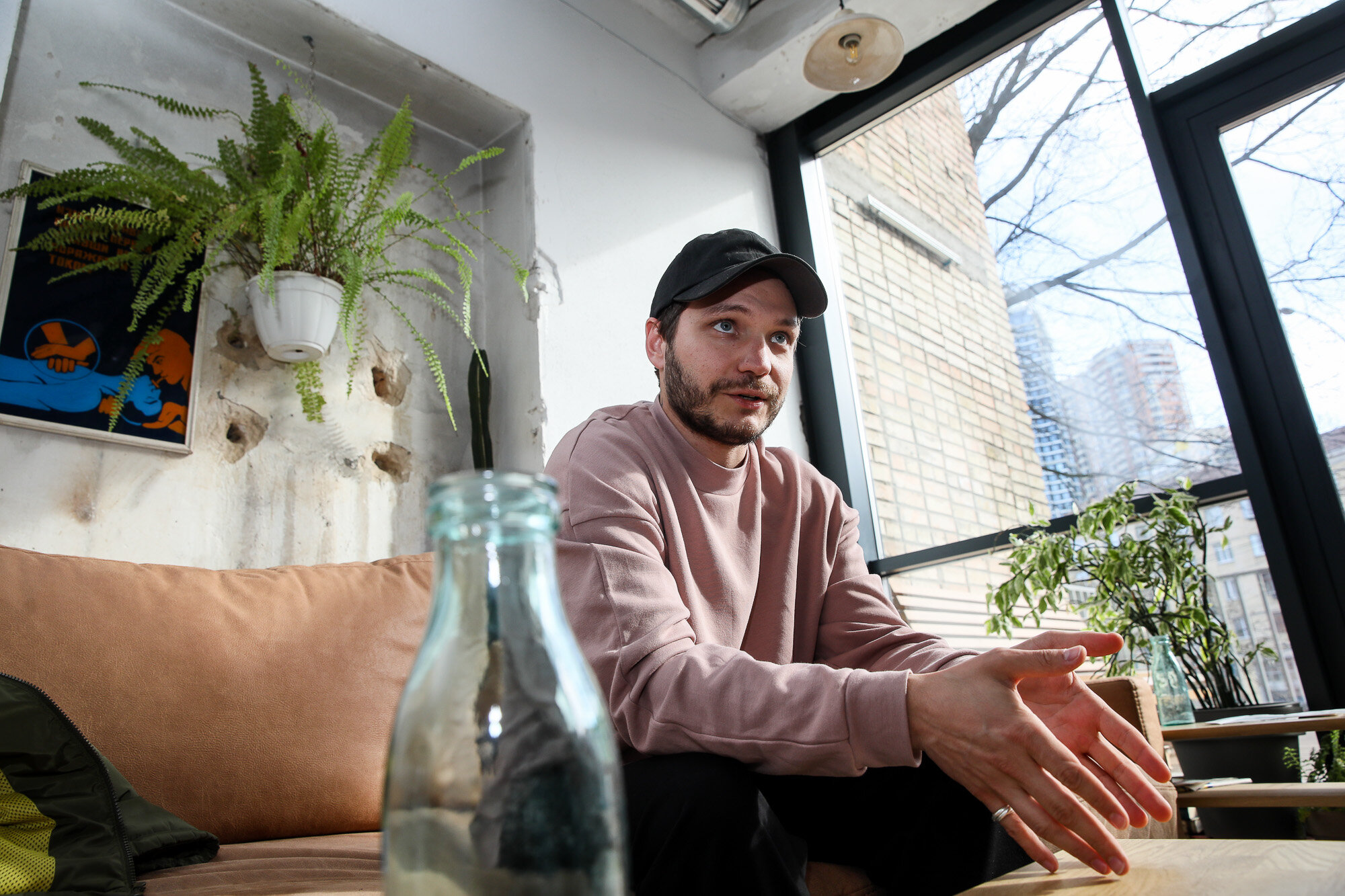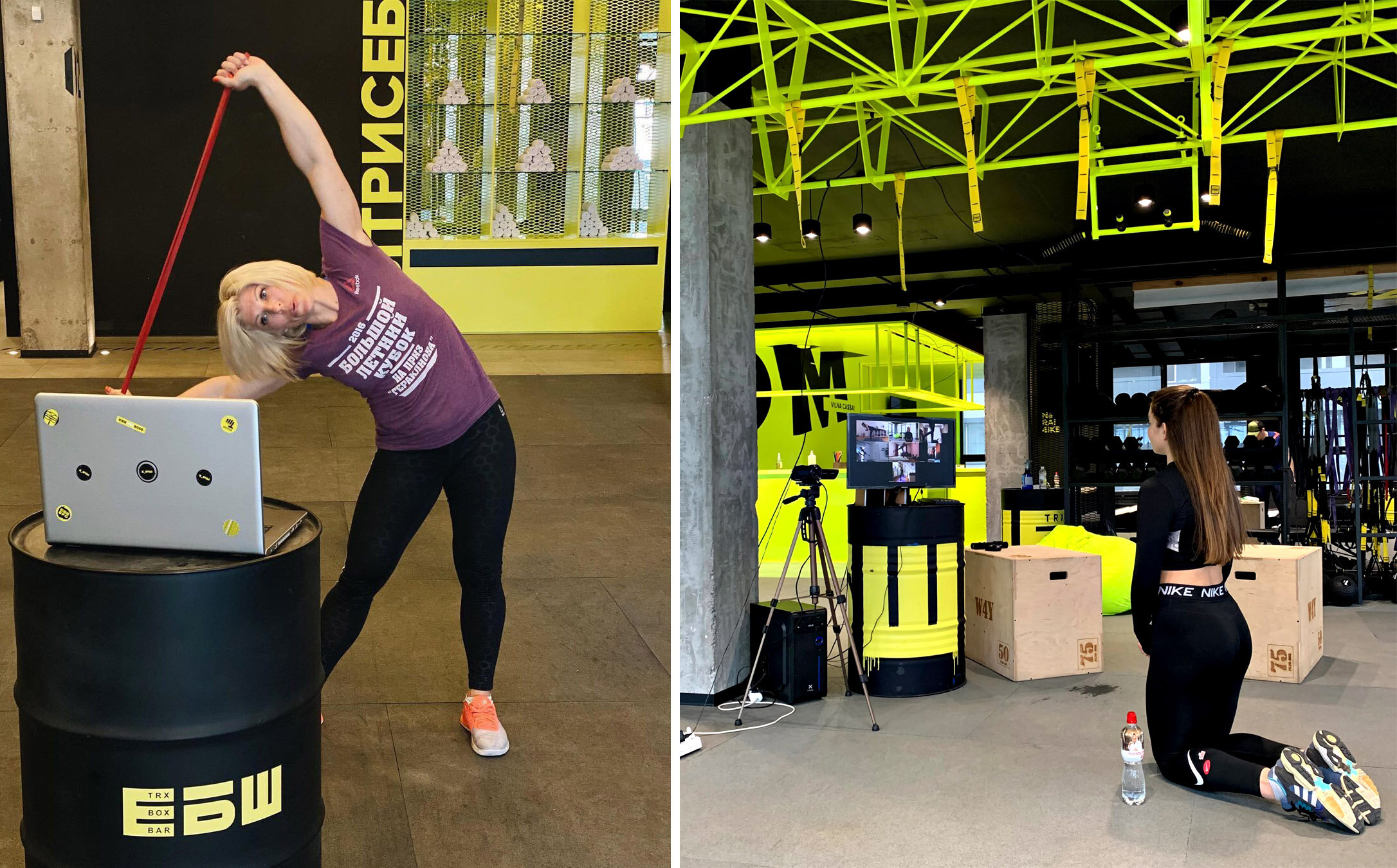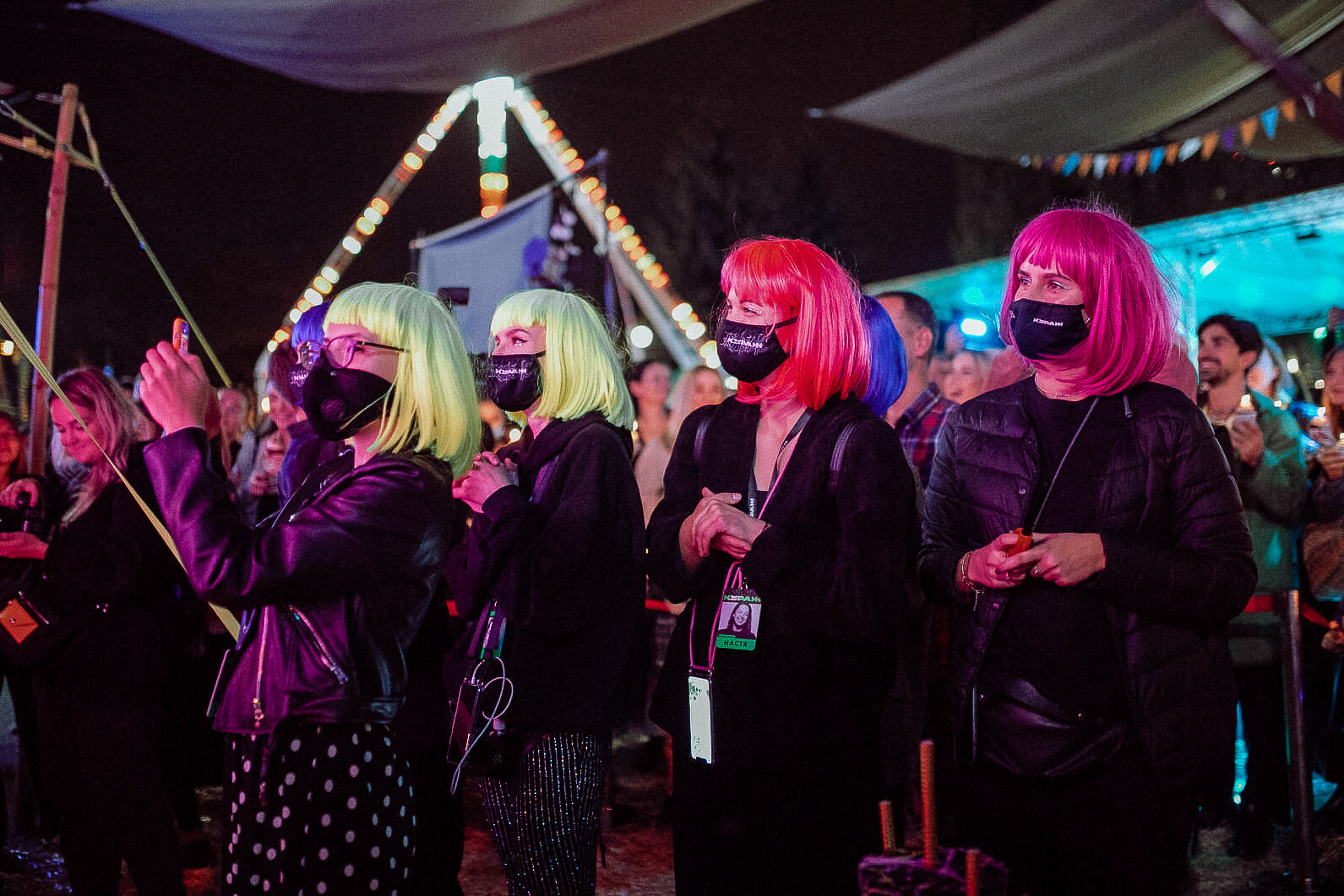As warm, sunny days arrived in Kyiv, hope was in the air for a more normal spring than last year.
But the record-breaking spread of COVID‑19 pushed Kyiv authorities to delay carefree life in the capital.
Having gone through two lockdowns and multiple weekend and holiday restrictions, local businesses weren’t surprised when the recent infection surge resulted in more quarantine measures. But the latest lockdown still came as a disappointment because of the short notice. Announced on March 18, the new restrictions came into force just two days later.
Restaurants went back to providing delivery and takeout, with no permission to serve tables. Gyms, cinemas, nightclubs and all other cultural venues and non-essential stores shut down. Mass events were banned once more.
The restrictions were initially set to last for three weeks, but the city authorities recently extended the lockdown at least through April 16, also shutting down schools, kindergartens and public transport.
With delivery and online services on track, Kyiv enterprises are meeting the new challenges prepared. But with the slow pace of vaccination and no significant state support, businesses face an uncertain future.
Restaurants
The pandemic killed nearly 4,000 restaurants across Ukraine by early 2021, according to restaurant expert and consultant Olga Nasonova, leaving 14,700 in January 2021.
Though the food scene suffered from the lockdowns and a lack of foreign visitors, the market proved to be sustainable in the face of the challenge. According to Nasonova, the worst forecasts predicted that as many as half of the 18,600 restaurants in Ukraine would close for good. But that didn’t happen, and the expert says the third lockdown won’t change the situation much either.
“Only those who planned to close will close. Most have already developed the optimal working format,” Nasonova told Interfax news agency.
Some who managed to adapt to the new reality were the eateries of Kyiv restaurateur Eugene Belousov. He is the co-founder of some of the capital’s most popular cafes, Blur Coffee and Octo Tower, as well as Whai Thai Asian bistro and recently-opened Bread For.

Restaurateur Eugene Belousov speaks with the Kyiv Post inside of one of his eateries, Octo Tower, on March 25, 2021 in Kyiv. Other businesses he co-owns, Blur Coffee cafe, Whai Thai Asian bistro and recently-opened Bread For, have set their takeout and delivery on track to survive during the third lockdown in Kyiv scheduled to last at least through April 16. (Volodymyr Petrov)
Not only have Belousov’s old eateries survived the crisis, but he also launched two new ones, which became instant hits despite the pandemic.
Though he didn’t lay off any employees, Belousov set up a system in which the workers’ salaries weren’t fixed but depended on revenue. The decision motivated staff and helped the business stay afloat, suffering only minor losses in 2020.
“We earn together and risk together,” Belousov told the Kyiv Post.
The entrepreneur says that the third lockdown wasn’t a surprise — the worsening epidemiological situation suggested that a new quarantine was on the horizon. But this time, Belousov had a plan. With adapted menus, his eateries continued providing takeout and delivery through popular delivery services or on their own.
Though the crisis drained his businesses’ financial resources, Belousov along with his partners continued to invest in new projects during the pandemic. His Octo Tower, which opened in September is not only a sophisticated coffee shop but also a co-working and education space and photo studio, creating versatile sources of revenue. Meanwhile, Bread For was designed specifically for the lockdown, with food and drinks offered for self-pickup and delivery. His next goal is to launch another Blur Coffee.
Though the crisis limited his business, for Belousov, it also served as motivation to keep the service running and continue to grow.
“Only the strongest and highest-quality players in the market survive,” he says.
Gyms
Gyms and sports studios weren’t as lucky as restaurants. They’re forced to shut down once again.
Throughout the crisis, gyms in Kyiv provided online training services, rented out equipment and sold merchandise to survive. But that couldn’t compare to pre-pandemic revenues.
The three-location gym chain EBSH (the acronym resembles a Russian profanity that means working one’s ass off) suffered tremendously. To maintain the business, pay rent and salaries, the owners need Hr 1.3 million monthly. This March, they can cover only half of that sum.

Kyiv’s three-piece gym chain EBSH started providing online training services during the pandemic in 2020. Now that the capital entered the third lockdown, the gym chain switched to online classes again.
To reduce expenses, EBSH cut employees’ salaries individually depending on how much work they continue to do despite the lockdown.
To attract at least some income, EBSH launched three types of online group training sessions, charging Hr 100 ($4) for each one. But despite being twice as cheap as regular sessions, they appear less popular among fitness enthusiasts.
The co-founder of EBSH, Julia Shum, says that she tries to stay optimistic and look on the bright side. For instance, recruiting a professional has become easier, as many coaches lost jobs.
EBSH now hopes that rent could be delayed or reduced for the duration of the lockdown. Otherwise, the chain would hit a dead end, and Shum says she is still struggling to come up with a solution.
Events
The event industry had it even worse. Outside of small glimpses of normalcy between lockdowns, mass get-togethers were either banned or restricted to the point of not being worth the fuss.
One of Kyiv’s beloved events, the country’s biggest charity market Kurazh is normally held every month. In 2020, it was only held four times and suffered Hr 1.5 million in losses.
The two-day event brings together local manufacturers and sellers of various goods from clothes and accessories to decor. The market also offers street food, drinks and an entertainment program, attracting 12,000 visitors each weekend.

People attend a music performance during Ukraine’s biggest charity market Kurazh on Oct. 11, 2020 in Kyiv. The monthly event had to cancel six of its editions last year because of the quarantine measures, losing about Hr 1.5 million. (Kurazh Bazar)
The event’s founder, Alyona Gudkova was in the middle of preparing for the March event with her 12-member team when the third lockdown was announced. Three months since the last event, the staff felt devastated after realizing their work has been delayed again.
Soon after that Gudkova wrote a touching post on Instagram, which encouraged Kurazh’s fans to buy 1,000 tickets for its next event scheduled for April 17–18.
“We saw what Kurazh means to people, not just to us,” Gudkova told the Kyiv Post. “It’s unreal.”
Gudkova did no layoffs but cut the salaries by 30–50% during the months when no events were held. Still, when possible, the founder paid full salaries and even made bonus payments. They were mostly paid from Kurazh’s reserves, which have now run out.
If things don’t go back to normal by summer, Gudkova fears she would be forced to move to the worst-case scenario.
“I can no longer imagine that we do not work because then it is easier for me to close,” she says.



